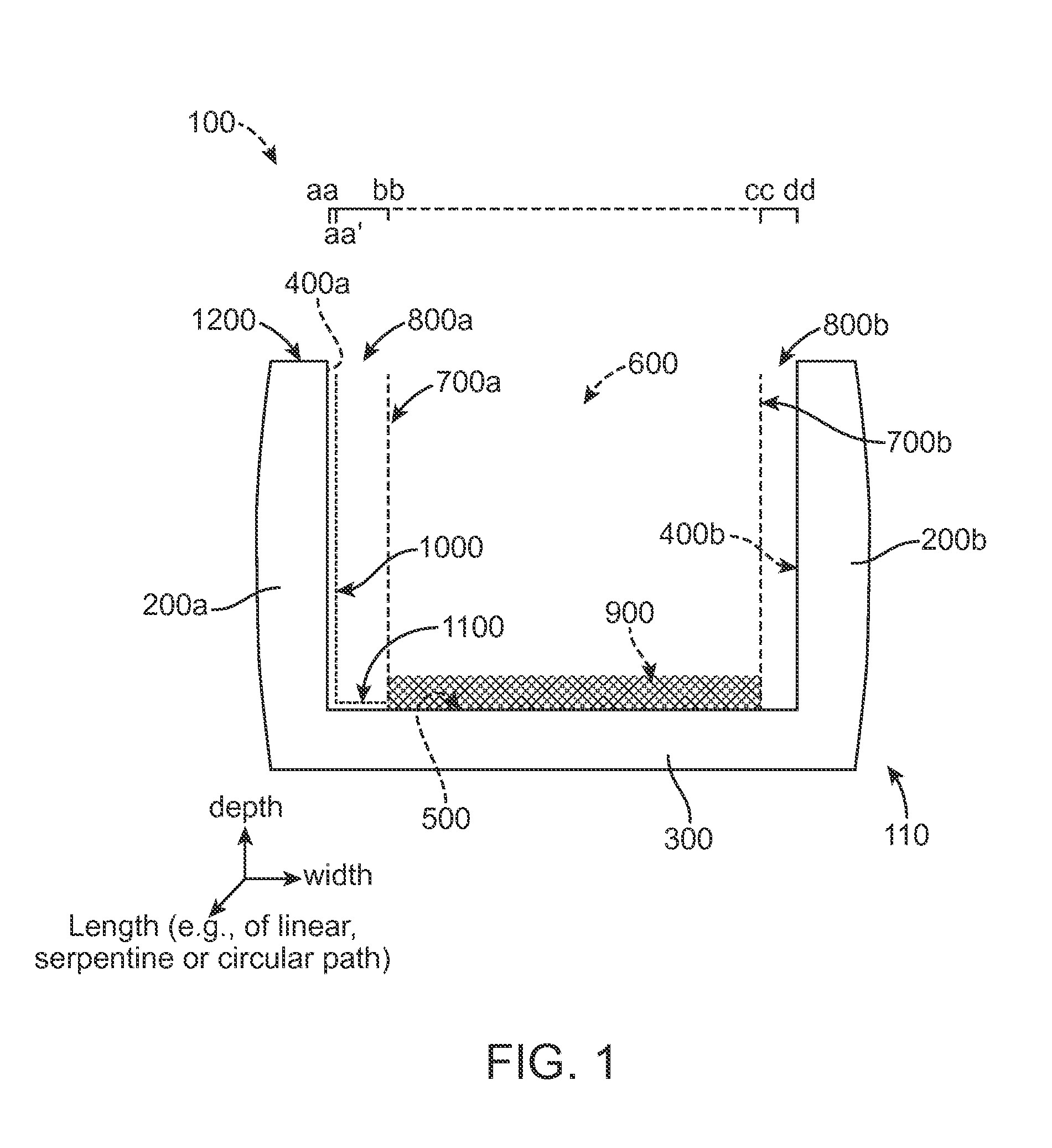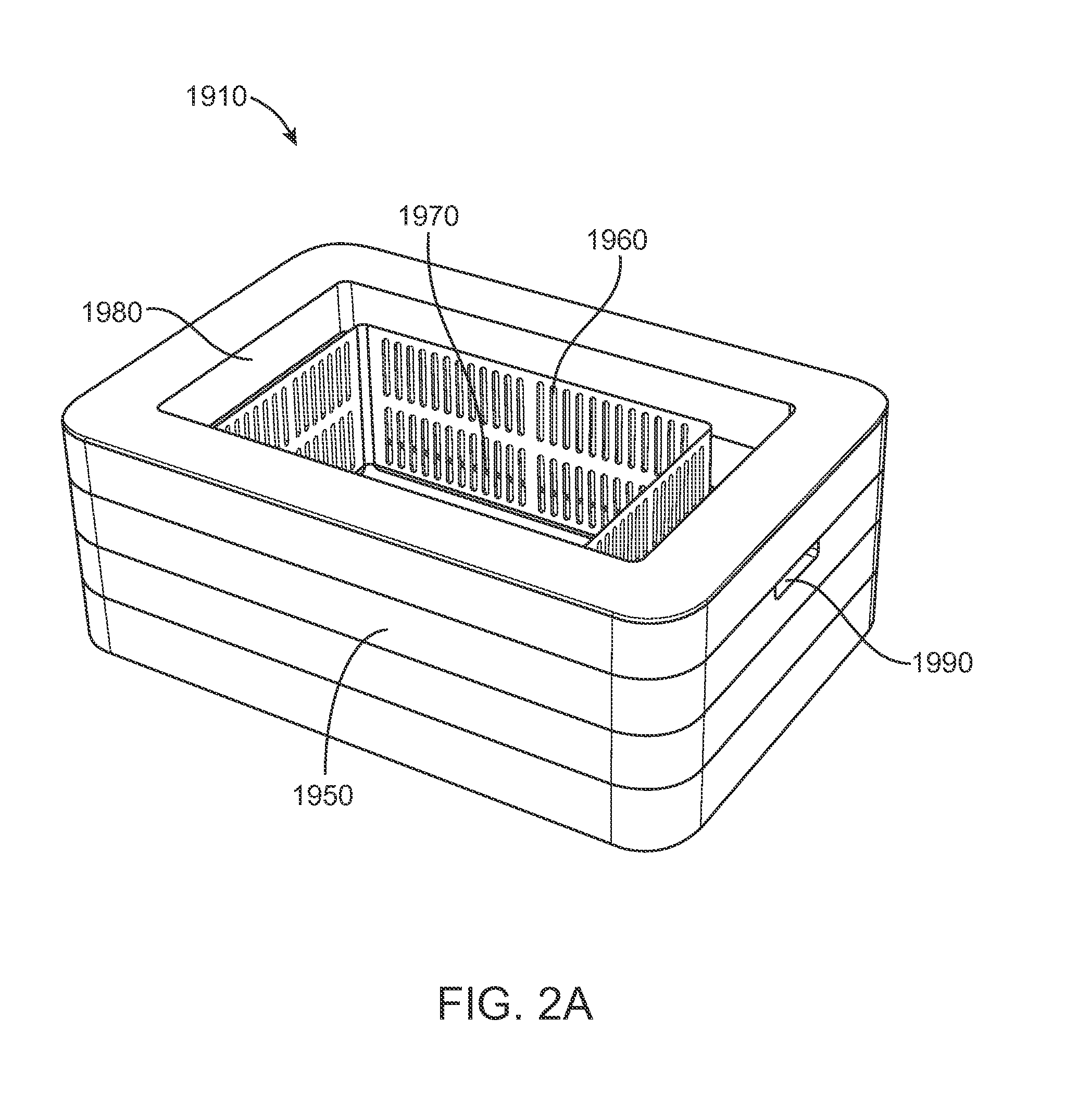Cryogenic systems
a cryogenic system and cryogenic technology, applied in the field of cryogenic systems, can solve the problems of increasing the opportunity for deleterious changes in frozen specimens, reducing the integrity of samples, and needing extensive manipulation of samples
- Summary
- Abstract
- Description
- Claims
- Application Information
AI Technical Summary
Benefits of technology
Problems solved by technology
Method used
Image
Examples
Embodiment Construction
I. Introduction
[0042]Materials stored in a frozen state at low temperature (e.g.; −70° C. to −50° C.) often require additional operations such as sorting, inventory, transfer, filling, boxing, labeling, cataloging, shipping, and location confirmation. Such operations typically require time intervals, spatial volumes, and access orientations that prohibit the performance of these operations inside conventional ultra-low temperature storage devices.
[0043]In one aspect, the present invention provides cryogenic workstations, or devices, for maintaining samples at an ultra-low temperature. In one aspect the device is used to maintain a low temperature zone that allows a human operator or robotic mechanism located in a zone of higher temperature to conduct extensive operations and manipulations on materials while maintaining them at low temperatures for optimal preservation of sample integrity. In one aspect, a low temperature zone is maintained during loading of a sample into the device....
PUM
 Login to View More
Login to View More Abstract
Description
Claims
Application Information
 Login to View More
Login to View More - R&D
- Intellectual Property
- Life Sciences
- Materials
- Tech Scout
- Unparalleled Data Quality
- Higher Quality Content
- 60% Fewer Hallucinations
Browse by: Latest US Patents, China's latest patents, Technical Efficacy Thesaurus, Application Domain, Technology Topic, Popular Technical Reports.
© 2025 PatSnap. All rights reserved.Legal|Privacy policy|Modern Slavery Act Transparency Statement|Sitemap|About US| Contact US: help@patsnap.com



